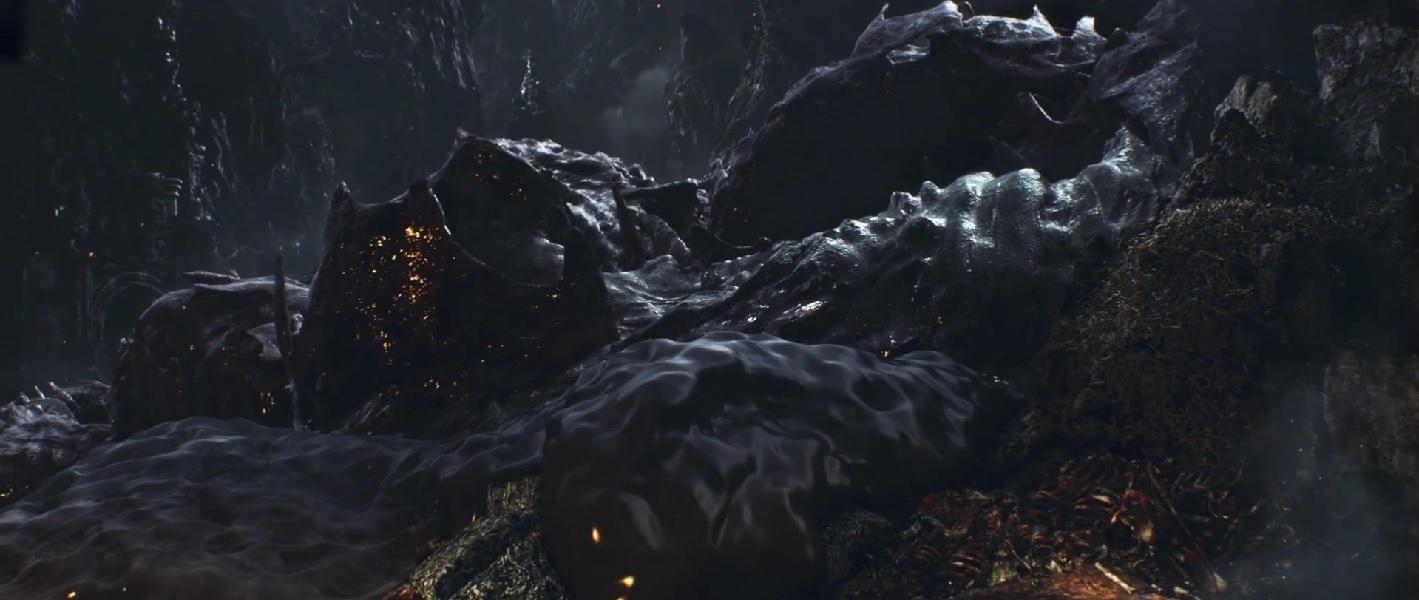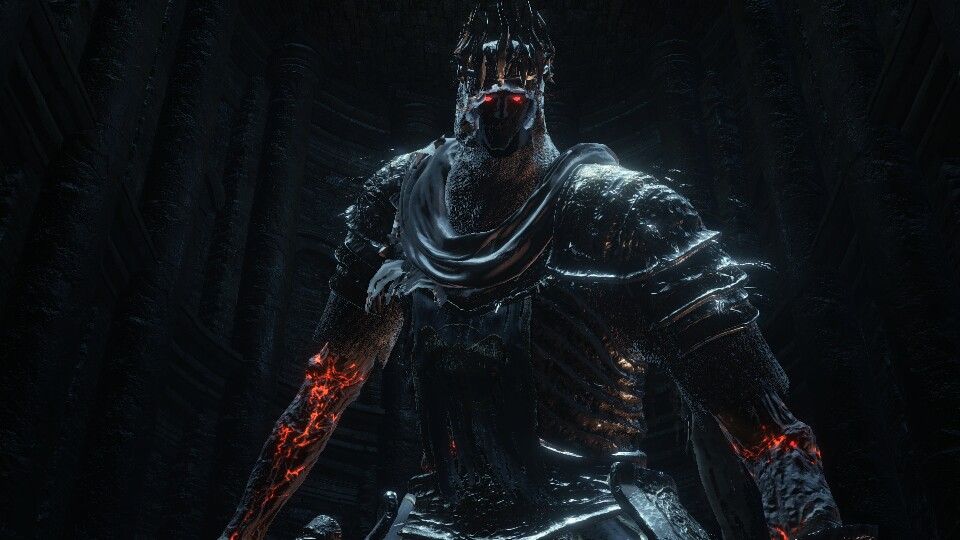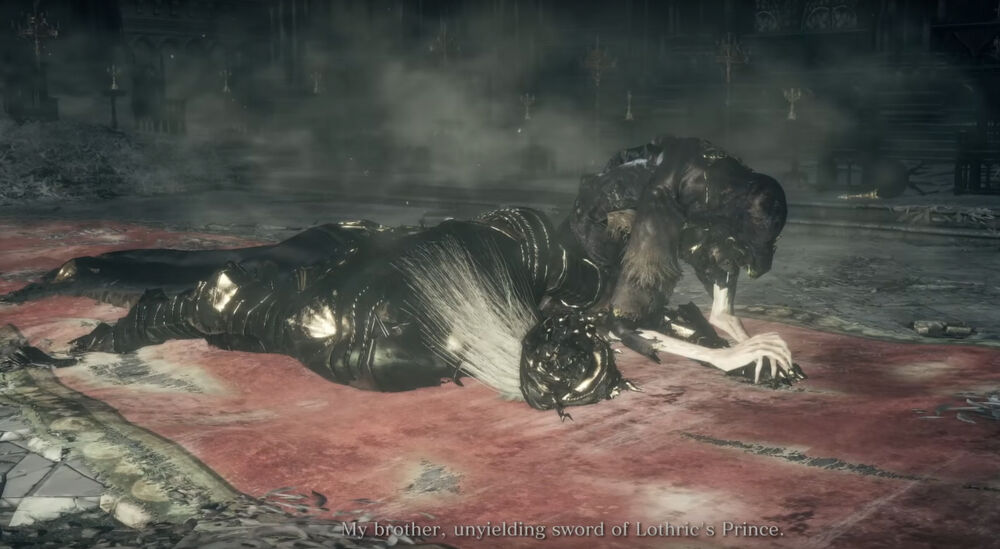"Dark Souls" and How Bad Leaders End Great Kingdoms
- 6 minutes read - 1199 wordsFor many who stand outside the gamer community, it may still be a moot question as to whether video games are literature. Based on my experiences over the last several years, I would contend that some titles since the turn of the millennium transcend “video games” (home digital pinball or pachinko machines (1980s)) unto “literary games:” a form to rival, if not surpass, cinema or novels.1
As I have already written, for its scope, thematic richness, and majesty, I consider Dark Souls 3 literature fit to rival tomes like Crime and Punishment or War and Peace or Moby Dick. Like other great works of literature, once read, its story sticks with you so that one given day, years later, you find yourself reflecting on the text and realizing a powerful point made by the author, Miyazake Hidetaka.
While I covered the meanings of the endings and the experience of playing the game, one angle I didn’t cover is that the reason the Lords of Cinder abandoned their duties is related to a vice, a fatal flaw, a hamartia that is a perversion of a virtue associated with a good ruler. Miyazake wants to teach us by inversion what good kingship is, no different than say Machiavelli, Hobbes, or the author of Gilgamesh.
The King Is Judicious In Force Not Bloodthirsty

An Abyss Watcher
In my previous analysis, I characterize the Abyss Watchers as distracted by battle. I think, now, that that was imprecise, I believe Miyazake is warning us against bloodthirst. The good king can’t escape his fate, and violence may be a necessary part of his righteous defence of his kingdom, but violence in itself must never be the goal. This interpretation is supported in that, during the fight, a Watcher rises and takes your side and fights two of his compatriots. In doing so, they literally pantomime the battle of a soul at war with itself between bestial bloodthirst and kingly, zealous, righteous capital exercise.2
The King Is Measured In His Will To Power not Gluttonous

The liquid form of Aldrich, Devourer of Gods
The onetime savior Aldrich is now possessed of a literal appetite to devour the gods. His theophagic urge is repeatedly characterized as gluttonous and indecent by non-player characters e.g.:
Let’s take Aldrich, for one. A right and proper cleric, only, he developed a habit of devouring men. He ate so many that he bloated like a drowned pig, then softened into sludge, so they [left ambiguous] stuck him in the Cathedral of the Deep. And they made him a Lord of Cinder. Not for virtue, but for might. Such is a lord, I suppose.
I believe that Miyazake is cautioning us against trusting strongmen or religious men or (perhaps worst of all) religious strongmen who ultimately stake their claim to kingship on might and their willingness to flex it in the pursuit of knocking off those in their way. The fact that the banality that I just wrote is so thoroughly explored and made complex in the game is more support to my argument that this game is literature.
The King Is Deliberate Not Self-Pitying

Yhorm the Giant
In the case of the reclusive giant Yhorm, the virtue of the king is deliberateness or impeccability as used in the Don Juan saga. Yhorm was a conqueror, but when his conquered acclaimed him, he ceased ravaging and, instead, became the defender of a kingdom. He was loved, celebrated, and fearsome. But, after his sacrifice to save his kingdom – and the rest of the world world – he returned to his kingdom to find his hall empty, his people killed en masse as if by some horrible, profane magic. Realizing his failure as a protector even as he gave his life to save the world, Yhorm retreats inward and abandons any other calls to leadership. Yhorm has chosen to retreat terminally inward, to await the end of the world as a spiteful mockery of the notion that the world has rhyme, reason, or order.
But I believe Miyazake calls us not learn that the good King bears the horrible weight and cost of losing lives in the righteous defense of his kingdom. Aeneas cries out as he loses men in a tempest; Odysseus pities those devoured by giants or bewitched. Making the best decision for a people will cost the king the ease that not sending men to die provides. But those who place such ease as a primary focus are not fit kings.
The King Has Vision not Apathy

The feeble prophet Prince Lothric and the bested body of his brother
The final Lord of Cinder is Prince Lothric. His metastasized virtue is vision: the king must look into the long cycles of history and try to understand how they give rise to the current moment. The king must then look into the future and try to calculate the complex side effects that a decision necessitates and aggregate those costs. And then, knowing these costs and possible outcomes, the king must articulate, share, and lead to help a people move toward the best possible outcome. That’s vision.
But let’s imagine perfect vision, imagine seeing perfectly far backward or perfectly far forward as a prophet might.3 With perfect knowledge but without attachment to the subjects in the kingdom, this would easily devolve to apathy. In doing so he the king becomes weak, detached, cynical, and cold. And, indeed, this is exactly how the work characterizes Lothric.
Conclusion
Miyazake instructs, thus:
The good king soberly craves power in rational portion to his ability to wield it judiciously and soberly (anti-Aldrich). In taking power, he realizes that absolute sorrow, absolute pride, absolute shame, absolute glory will accompany him as he slaughters any hopes of ease as a sacrificial lamb; he bears this with impeccability unladen by malice or bloodlust (anti-Abyss Watchers) and free of self pity (anti-Yhorm). He accepts that he cannot dissociate from time or his moment in the world (anti-Lothric) but feels the burdens as a king must: fully, absolutely, and with nobly sturdy shoulders. He serves as a model of an absolute morality more ancient than any religion.
Footnotes
- I think the key advantage video games have has to do with characterization. A movie that’s light on characterization, or that leans heavily on stock characters à la commediate dell’arte can be saved by plot, camera work, or an outstanding musical number. As much as I love Amélie, the characters are lovely, but shallow. The game designer knows that the gamer necessarily must transfer their I to the character(s) they control. This empathetic switch provides a profound mode for moral instruction (e.g. The Last of Us 2) that neither cinema nor book provide. In games, the audience cannot create distance from the art and feels the consequences acutely
- A theme further explored in Bloodborne
- The themes around the perfection of clairvoyance and the prophet’s tie to his people/his person is an interesting literary discussion seen in Herbert’s Dune and also the Matrix saga. These words, like Souls see that the fallibility of human foresight leads us to make intuitive grasps that sometimes “break the rules” in ways that have lead to humanity’s surprising resilience